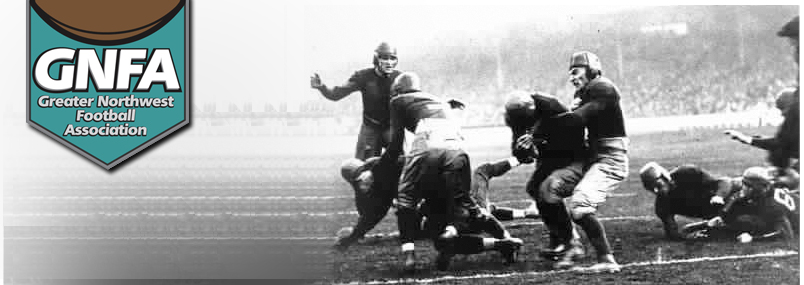|

Why you
should go, what to expect, and how to make
it happen.
By Augie Stevens, a
current head coach for a top-division team
in Europe, former college coach, and Greater
Northwest semi-pro alum.
Twitter:
@Coach_AStevens
Instagram:
@Coach_A_Stevens
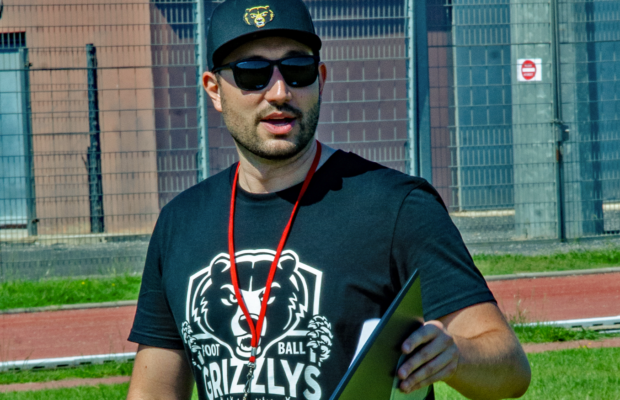
"Football has
taken me to such wonderful places and
connected me with a massive range of people.
I want others to share in the beautiful
experience I’ve had through football
overseas and hope that through this article
you’ll learn why you should consider taking
this path, what the sport is like abroad,
and how you can start making it a reality
right now".
Why should
you consider playing football abroad?
First let’s get into
what the opportunity really is. It’s a
chance to become an ambassador of our game
to a community overseas, a missionary
helping to spread the good word of football.
I’m a massive believer that this sport
teaches some of the most important life
skills young people need, such as how to
deal with adversity/high emotion, how to
work as a team with people who might be
different than you, and how to aggressively
pursue long term goals daily. These are
great universal values that I hope you’ll
join me in proudly exporting and developing
around the world.
On a personal level,
you’re going to have an amazing experience,
meet wonderful people, and absorb a whole
new culture. You’ll have a whole collection
of “once-in-a-lifetime moments” to reflect
on. You’re not just briefly visiting an area
like a tourist, but instead becoming part of
a community over the course of a full season
or beyond. You get to explore a place with a
level of depth that can only come from real,
local, human connections.
Bottomline, you only
have a small window in which you can
physically play this game. You’ve heard it
since you first started playing, “eventually
you’ll take off your helmet for the last
time.” If you read through this article and
like what you hear, don’t hesitate.
What level of
athlete are teams looking for?
There are many teams
out there at many different levels (which
I’ll dive into below). But every team is
looking for trustworthy athletes who will
help them win and help develop their local
players. As for talent, teams obviously want
the top players available for what their
wallet allows. Players fresh out of any
level of college who saw playing time will
be able to find a home somewhere. The higher
the division level you played, obviously the
higher the interest from better teams.
Players with professional experience ranging
from IFL, XFL, CFL, NFL will get increased
attention. There are plenty of semi-pro
players who make the jump overseas as well,
the key factor usually comes down to prior
experience and the quality of your most
recent film.
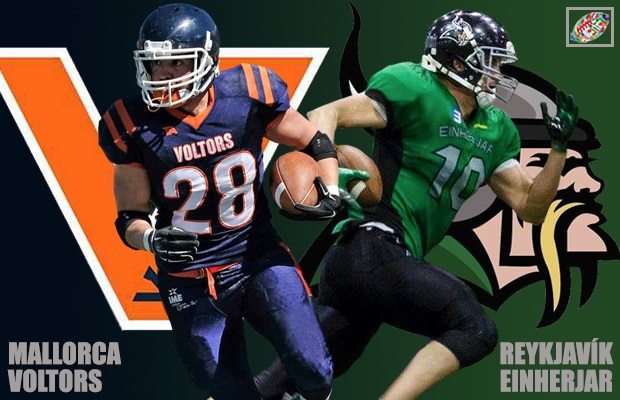
What are the
teams like?
There are hundreds of
teams overseas of some notable quality. But
within this number is a massive variety
depending on region, financial investment,
and competition level.
Where are these
teams?
Football abroad isn’t
limited to just Europe. You’ll find leagues
across the globe from Japan and China to
Africa and the Middle East. Every country
adds their own flavor to the game and you
can truly find yourself traveling the world
as an import.
Understanding
different leagues and divisions
The first thing to
understand is that there are many different
leagues overseas, with most loosely based on
country. These leagues are further split
into divisions in which teams are competing
for a championship, promotion, and to avoid
relegation. To understand what’s going on
here imagine if every year in college
football the Division III champion
automatically moved up to play Division II
the next year, and the worst Division II
team would automatically drop down to
Division III. That’s exactly what happens
with football programs abroad. It motivates
each team to chase championships within
their division to advance up the ladder,
creates drama in the lower part of the
division to avoid being last, and ultimately
shakes teams out based on their quality year
by year. Competition at each division level
is naturally going to have differing
athletic quality and the rules change as per
how many imports like yourself a team can
sign.
You should note,
recently a new league has formed in Europe
under a more professional model, called the
ELF. This emerging league is made up of
teams throughout the continent. It remains
to be seen how this endeavor will turn out,
but teams are investing significantly into
pro players and forming higher quality
staffs. The salaries and benefits aren’t
necessarily higher, but the level
competition could be.
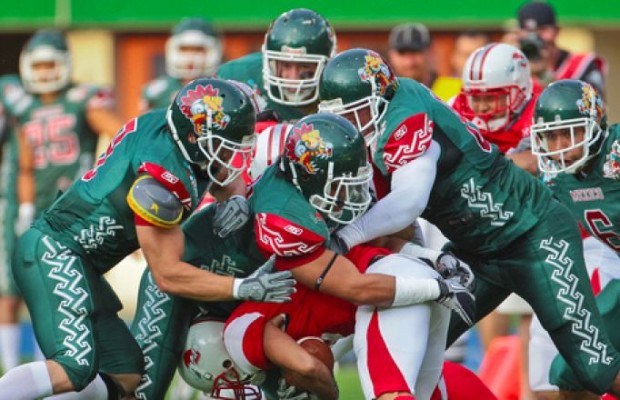 Who are the local
players on these teams? Who are the local
players on these teams?
Similar to semi-pro in
the US, your teammates are grown men with
families, jobs, and distractions outside of
football. Most local players are not getting
paid, though some are receiving benefits.
Most are contributing a small fee to the
team and purchasing their own equipment.
They are playing because they love the game.
However, depending on the division level and
quality of the league you’re in, there are
many non-North Americans with high quality
talent doing the same thing you are. Many
teams have additional import player slots
designated for such players.
What sort of coaches
should I expect?
This is very dependent
on the quality of the organization you’re
joining. Some teams have large staffs with
several full-time coaches, others may only
have a single paid coach assisted by local
volunteers. Sometimes these full-time
coaches will be imported Americans, but
there is an increasing quality and number of
coaches abroad. When evaluating a team it is
very important to be comfortable with the
coaches you’ll be playing for. Especially
consider the language factor. If you're
playing for local coaches you’ll need to
anticipate practices, meetings, and game
instructions all being in their native
language.
What is the
competition like?
The quality of athletes
on the field depends on the division and
league of the team. If you want to get a
sense for what it looks like you can always
check them out for videos online or ask to
see inside their HUDL account briefly.
What is the
weekly schedule load?
This isn’t a
college-style grind. Practices are typically
2-3 times per week, with a few lifting
sessions and meetings somewhere in between.
The great news here is that this gives you
time to focus on your craft of being a
professional player in your own best way
while having the freedom to explore your new
area.
What’s expected
of you as an import?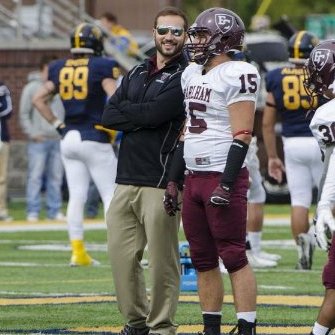
My simple rules of advice…
1. Be where you should be.
2. No job is too small. Offer to help
with everything and anything.
3. Be respectful, coachable, and conduct
yourself as a professional.
Furthermore, obviously
you need to be a leader on the field and
make an impact. You need to bring a high
level of violence and intensity. If you
aren’t getting it done physically, you’re
going to get cut and sent home. You may be
asked to help coach your position group. Be
ready to lead drills, have a teaching
mindset, and understand that the men around
you haven't had your experience or
background - that's why they hired you.
Most of all, AVOID BAD
SITUATIONS. As you can imagine, trouble can
easily find you in the form of temptations
or dangerous environments. You need to make
good decisions that reflect well upon
yourself and the team. Remember who you are,
be wise, take care of your business.
Language Barrier
There's football in
Australia and the UK, but just about
everywhere else you go the people will speak
a different language than English.
Typically, big cities will have more English
speakers but living in smaller towns can be
a wonderful experience as long as you come
mentally prepared. There’s nothing quite
like the challenge of getting dropped into a
foreign country where no one speaks your
language and going about your day to day. No
matter where you go, you should prepare
yourself with the basics of their language.
You don't need to be fluent, just
functional. It will help you have a richer
experience and give you a better
understanding of your environment.
Opportunity for
Exploration
Wherever you go you'll
be somewhere a long way from home. This
means lots of unique places to visit and
probably some very old historical sites, and
because you aren't practicing everyday,
you'll have time to explore locally. Talk to
your teammates, make friends, and go
experience what the region has to offer.
You may have time after
the season finishes to take a more extended
trip. Talk with your management about
scheduling the details of your flight home.
Once you are abroad, traveling to different
countries can be quick and cheap. You might
invite some close teammates and go take a
few weeks to visit what area has to offer.
This is also a good time to visit with
management from teams you might like to play
for in a future season.

How
to start reaching out to teams
The first step is to go
to a website called Europlayers.com which
you’ll quickly discover is an online
marketplace for import players, coaches, and
teams. Create an account (free for a basic
set up) and fill out your profile. Be
professional and remember that coaches such
as myself will be looking through it and
making quick judgements about who you are
and your attention to detail. Here is the
ideal profile when I evaluate an athlete:
·
Very clear
and brief details about your playing career
(written like a resume is best).
·
Your former
coaches I can call for references.
·
Explanation
of any criminal or questionable things I’ll
find when I research you.
·
Clear photos
of yourself.
·
Highlight
videos. Here’s my quick points for making
them effective:
-
Clearly mark
the season for which the highlight clips
are from and understand coaches aren’t
interested in video that isn’t recent.
-
You’re
clearly marked before each play.
-
You’re using
the appropriate wide or tight shot based
on your position (obviously tough to
evaluate OL from a wide angle).
-
No extra
effects or artwork (if you include music
just know I’ll judge you on the
selection!). Remember this video is your
resume, not a hype video.
-
Keep the clip
length as short as possible.
-
Start with
your most violent/athletic play.
Impressive me with your physicality
immediately and set the tone for the
rest of how I’ll evaluate your video.
-
Show me all
of the skills involved in your position.
-
HUDL or
YouTube doesn’t matter to me, just as
long as all the elements are there.
-
Other videos
with your strength maxes or pro day
events can be helpful, especially if you
have limited video.
After you have
everything set up you can start reaching out
to teams. You’ll see the search options and
quickly realize how many programs are out
there. Don’t get overwhelmed, just start
chewing on the information as you research
how these teams advertise themselves to
prospective imports. When you identify a
team you like you can send messages directly
to team representatives. That’s a good
start, but you should also consider trying
to find them and connect on social media
(ensure your social media is job hunt
ready). OF COURSE… be professional when
sending messages to teams. Don’t use a basic
message and copy-paste a hundred times. Be
brief, but show interest in something
specific that interests you about their
program. Encourage them to go watch your
highlights. Remember that many of the people
you’re reaching out to don’t speak English
fluently, so don’t be surprised to receive
strange vocabulary in their responses, it
could very well be going through a
translator application. But, on the flip
side, if you get a strange vibe and a team
can’t speak with you professionally it might
tell you something about how they conduct
their business.
As you start having
conversations with team representatives it
becomes important to take good notes and
stay active in your communication. Ask
questions, research their leagues, season
dates, and past players. It is always a good
idea to find and contact past players to
find out more about an organization from
their inside perspective.
Salary and Compensation
The biggest
compensation you get from playing abroad is
always going to be the experience. You get
to absorb a culture and be included in
things no tourist ever sees. You'll have a
deep dive into a whole different world.
That being said, teams can offer you
a range of incentives, such as the
following:
·
Flights to
and from
Teams will almost always cover your
roundtrip airfare. Be specific about luggage
and fees in your contract.
·
Housing and
utilities
Housing and paid utilities are typical, but
can vary in quality. Ask for pictures, an
address, and about if you’ll have a
roommate.
·
Food plan
Some teams will offer you a daily meal plan,
usually from their local restaurant or
grocery store sponsors.
·
Phone/SIM
card
Teams will usually provide you with a SIM
card that goes into your phone so you can
have a local number and navigate yourself
around with data. Occasionally they might
have an actual phone to provide for you.
·
Medical
Insurance
This is a violent sport and you should
absolutely ensure you have medical coverage
while putting your body at risk for any
organization.
·
Gym
Teams should provide you with a gym whether
at their own facility or by getting you a
membership at a nearby location.
·
Visa
Assistance
For long term players this can be a very
important thing. As Americans, we can travel
to Europe any time and stay for 90 days
without worry and no need to apply for any
special visas. However, you’re going to be
there longer than that and teams technically
should take care of that.
·
Transportation
You’ll need a method to travel to practice,
the gym, grocery store, etc. The team should
provide a car, bus pass, bicycle, etc.
·
Team gear
You’re a walking advertisement for the team
and typically you can expect a few t-shirts,
shorts, and such for your wardrobe.
·
Equipment
The team should provide you with a helmet,
shoulder pads, practice jersey, and
everything you need to practice and play…
HOWEVER, you should always bring your own
gear if you have something you’re
comfortable with.
·
University
classes
Some programs are associated with a local
college and can offer you free courses. This
has obvious educational/career benefits, but
typically also allows you to obtain a
student-visa. This, in turn, allows you to
have part time work as well.
·
Part-Time
Work
Teams have connections throughout the
community and can often find side jobs for
you. This can be an easy way to put some
money in your pocket or build some job
skills.
…And of course:
•
Salary
-
This
is very dependent on the organization,
league, and your position. Expect a
range from around $1,200/month for a
very high-end player to no actual salary
at all.
-
Quarterback is the most sought-after
position. A high-quality player who’s
either fresh out of a DI starting role
or who’s proven himself for several
years abroad already will see around
$1,200/month.
-
$600-800/month would be considered a
very solid and reasonable offer by most
programs.
-
Consider that the cost of living can be
very different depending on the
location. The money a team offers might
go a lot further (or shorter) than you
think.
-
Most
teams will offer you some kind of a
salary but it is true that some don’t.
Such programs go much heavier on the
other benefits and it can be worth
considering if it balances out.
•
Bonuses
It is rare for
players to have bonuses built into their
contracts, typically only import coaches
might see them, but you can always try and
negotiate for extra earnings for things like
wins or specific stats.

All of these
benefits are negotiable (and key points on
how to approach it
Absolutely every one of
those benefits listed above are negotiable.
You are a professional offering a service.
Negotiating is what professionals do, it’s
how business is done, and this is a business
transaction. Here are some key points to
consider when responding:
·
Teams will
offer you an initial number a little lower
than what their budget allows.
·
Let them make
the first offer so you see what their
opening bid is.
·
Are you
actually interested in this team?
Specifically ask yourself, “If they agree to
the terms I’m suggesting will I say yes?”
Don’t waste your time or theirs if not.
·
Be reasonable
with your counter-offer. Remember that teams
have many options for import players and you
can easily price yourself out.
·
Write your
own contract (with the help of someone who
knows what they’re doing with legal
writing).
·
Consider the
contract length. What is the report date?
Are they able to easily terminate your
contract without penalty?
·
If you have
another team bidding for you, especially one
from the same league, share that with them.
Teams are more likely to offer you their
maximum number if they know they have
competition.
·
Don’t wait
too long. Expect a negotiation to be on the
table for no more than 3-4 days before teams
will move one. Be in daily communication
with the team.
Having read all the way
through this information I hope you’re
excited about the possibility of playing
overseas. I’m on a mission to build a
“kingdom of football” in Europe and would
love to others make the journey over here.
My decision to coach abroad has led to so
many wild adventures that difficult to even
explain half the time. I wish you the best
of luck as you continue your playing career
and would love to connect with you via
social media if you need any guidance.
Regards,
Augie Stevens
American Football International Profile
Article: "Coach
Augie Stevens and his worldwide path to
southern France"
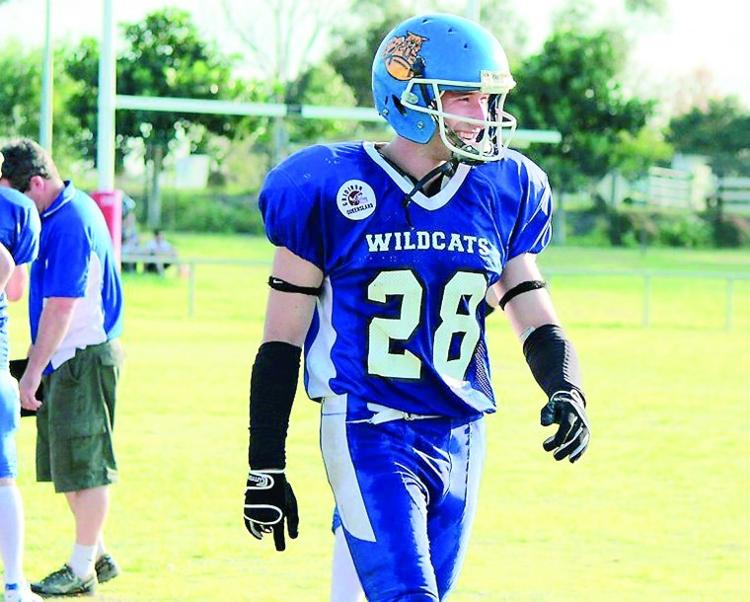
|

